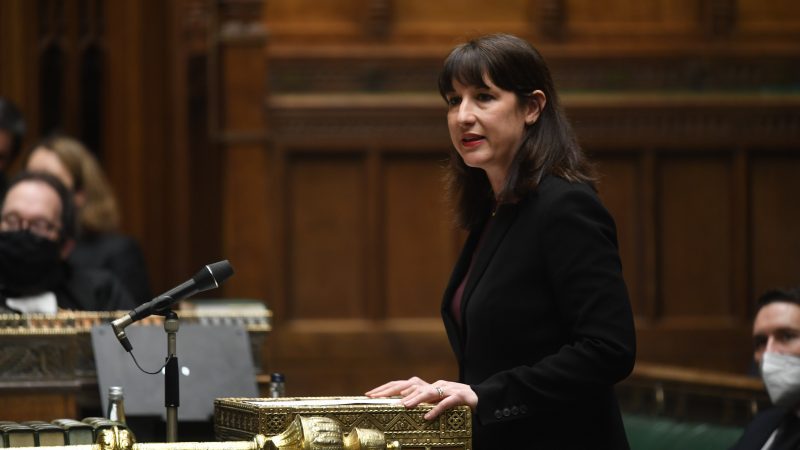
Rachel Reeves has criticised Boris Johnson for delaying the government’s promised economic crime bill, arguing that doing so in the face of Russian aggression in Ukraine “sends entirely the wrong message” to Vladimir Putin.
The Prime Minister mentioned at PMQs that the legislation would be published in the next parliamentary session. Keir Starmer replied that he hoped he had “misheard” Johnson at the time and the Shadow Chancellor has now raised concerns.
“It’s not right that such huge sums of dark money linked to the Russian regime are allowed to flow through the UK. This must be a turning point on having a soft touch on illicit finance flowing through the UK,” Reeves said.
“But instead, the day after Russia has invaded the Ukraine, the Conservatives have chosen to delay the economic crime bill, breaking the promise they made to introduce it in this session.
“This is a mistake and sends entirely the wrong message. The government must think again and immediately speed up action on tackling illicit finance and drawing a line on oligarch impunity in the UK.”
Johnson used Prime Minister’s Questions today to tell parliament that his government would “peel back the facade” of beneficial ownership UK property, but he said the economic crime bill would be published in the next session.
Starmer said Johnson would have Labour’s support for the bill if it were brought forward sooner. The Labour leader also called on the government to back Labour amendments to prevent “unfettered” donations from shell companies to UK political parties.
Johnson was criticised by opposition and Conservative MPs when he unveiled the sanctions on Tuesday. He named only five Russian banks and three high-net-worth individuals to be affected, including with frozen assets and a UK travel ban.
The government committed to delivering its economic crime bill in the Queen’s speech in 2021. It is thought that the bill would seek to fill the gaps in British regulation, making piecemeal provisions amending existing legislation.
The Treasury select committee published a report this month, which analysed government steps to combat economic crime, warning: “Since 2019, it appears that economic crime has not reduced but has instead continued on an upward trend.”
National Crime Agency research in 2019 estimated that money laundering costs the UK more than £100bn pounds per year. Upon his resignation last month, Lord Agnew said: “Fraud in government is rampant. Public estimates sit at just under £30bn a year. There is a complete lack of focus on the cost to society.”




More from LabourList
‘The hope that kills you’: Reflections from the final day in Gorton and Denton
MPs, union leaders and organisations react to ‘bruising’ Gorton and Denton result
A gory night for Labour